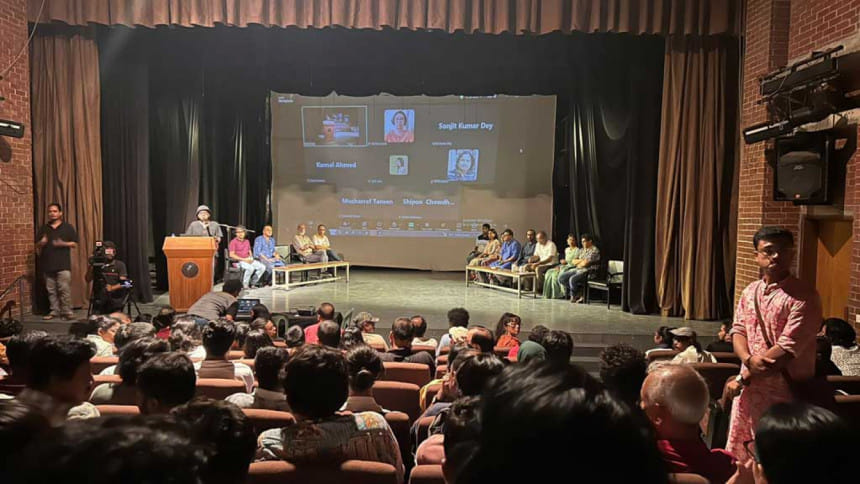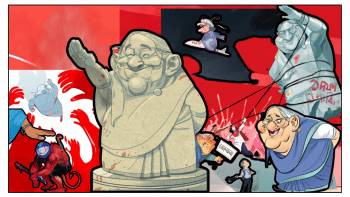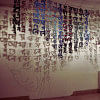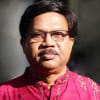Theatre activists rally for reforms after ‘dictator’ Lucky’s fall

Bangladesh Shilpakala Academy's former Director General Liaquat Ali Lucky's reign of power over Dhaka's theatre scene and the country, as a whole, has been described as a "living dictator." To prevent any similar figures from taking this kind of autocratic and illicit root in the future, a group of theatre activists has put forward several proposals.
Lucky, who has long been accused of using political influence to monopolise leadership at the Bangladesh Shilpakala Academy and the Group Theater Federation, has faced widespread backlash for creating divisions and hindering the growth of theatre in the country. On Saturday, a discussion meeting was held to address these concerns and explore solutions for the future.

The meeting, which took place at the Bangladesh Mohila Samity Complex Auditorium in Dhaka, was organised by a platform called "Bikkhubdho Theaterkormigon" (Aggrieved Theater Practitioners). Many of those involved had previously protested against Lucky's corruption and autocracy under the banner of "Sadharan Nattyakormi Brindo" (General Theatre Activists).
Liaquat Ali Lucky was appointed as the director general of the Bangladesh Shilpakala Academy on April 7, 2011. His tenure was most recently extended for the seventh time on March 29, 2023, making him the longest-serving head in the institution's history. His extended stay has generated widespread resentment within the cultural community, with the Anti-Corruption Commission even questioning him over allegations of corruption.
Following the fall of the previous government, Lucky stepped down from his position as director general amid the wave of changes sweeping through the country.
In light of these changes, theatre activists came together on Saturday to present their proposals for a new direction in theatre. Some of these suggestions were submitted via email by those unable to attend in person.
On behalf of the organising platform, the written proposals were presented by Mohammad Ali Haider, a prominent organiser from the theatre group BotTola. The discussion featured the participation of various theatre personalities, including Azad Abul Kalam, Bakar Bakul, Sudip Chakraborty, Kazi Roksana Ruma, Ritu Sattar, Samina Luthfa Nitra, Nahid Smriti, and many others, representing different theatre groups, playwrights, and directors.
Haider proposed that the post of director general at the Shilpakala Academy should no longer be filled based on political affiliations. Additionally, he suggested implementing a rule that no individual should hold the position more than once. Furthermore, he advocated for separating the leadership of the Group Theater Federation and other cultural bodies from the director general's role.
The theatre community believes that implementing these changes will help remove the barriers posed by the "Lucky-style autocracy" of leadership.
The meeting also raised concerns about technical obstacles in theatre performances, such as lighting and sound issues in venues. The activists demanded an end to irregularities in venue allocations at the Shilpakala Academy.
Due to the quota reform movement in July, many theatre groups had to cancel their performances despite booking venues. Although a month has passed since the fall of the Awami League government on August 5, all cultural activities, including theatre performances, remain suspended at the Shilpakala Academy.

The meeting concluded with a demand to reopen the Shilpakala Academy immediately.
Haider stated, "Following the previous government's fall, various branches of the Shilpakala Academy across the country were vandalised and looted. These issues need to be addressed quickly."
Theatre activists highlighted the lack of performance spaces across the country, noting that this hinders the growth of theatre. They called for the construction of venues and open-air stages in every district, as well as across different regions of Dhaka.
Kazi Roksana Ruma, one of the meeting's coordinators, said, "We sought proposals from all theatre activists for this discussion. Many shared their thoughts via email. We will consolidate these ideas and present them to the authorities."
She added, "By considering everyone's thoughts and ideas, we aim to build a thriving theatre community. Our goal is to ensure that the Shilpakala Academy becomes a true centre for cultural practice, and we will continue these constructive discussions to achieve that."

Unrest in the theatre community
Liaquat Ali Lucky also served as the president of the Bangladesh Group Theater Federation. His decision to dismiss Kamal Bayezid from the position of general secretary fueled additional controversy, leading Dhaka Theater to withdraw from the Federation in protest.
In June of last year, a faction of cultural activists, under the banner of "Sadharan Nattyakormi Brindo," also campaigned for Lucky's removal. Despite the outcry, he remained steadfast in his position.
Following the fall of the Sheikh Hasina-led government on August 5, a wave of leadership changes swept through both public and private institutions. Many leaders in government bodies, the media, judiciary, and universities stepped down from their roles.
The day after Sheikh Hasina left the country, a group of disgruntled employees at the Shilpakala Academy locked up the offices of the director general and at least 15 other officials. They vowed to prevent the removal of any documents related to Lucky's alleged corruption.

 For all latest news, follow The Daily Star's Google News channel.
For all latest news, follow The Daily Star's Google News channel. 










Comments